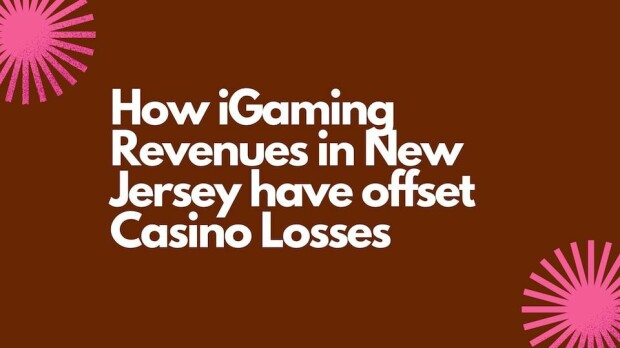
How iGaming Revenues in New Jersey Have Offset Casino Losses
In the wake of the coronavirus pandemic, there’s no doubt that online casino gambling and sports betting is becoming increasingly dominant in states such as New Jersey.
However, we should also note that this trend has existed long before the global spread of Covid-19, with the online GGY continuing to soar while the offline alternative dwindles considerably.
You can find a detailed guide here about NJ’s online gambling sites, but are iGaming revenues really able to offset the losses reported by land-based casinos? Let’s find out!

Image source: Saitowitz
The Immediate Impact of Coronavirus on Gambling in New Jersey
The coronavirus virus took a vice-like grip of the US in March last year, resulting in a swell of brick-and-mortar casino closures and an unexpected surge in online betting activity.
Of course, land-based losses were compounded by the postponement of various sporting events across the globe, creating huge gaps in revenue that both operators and the state were compelled to address.
As a direct result of this, total gambling revenues fell by a whopping 44% in March 2020 when compared with the previous month’s figures, as all nine Atlantic City casinos temporarily closed their doors.
Despite a marked increase in online betting (iGaming revenues in NJ increased by around two-thirds during the same reporting period), the tax revenue generated through gambling in the state declined by $8 million overall.
The takeaway here was clear; as the increase in online gambling was not enough to offset land-based casino or tax revenue losses, creating a significant shortfall and one that operators were completely unprepared for.
What Trends Have We Witnessed Since?
For the large part, this trend has continued in New Jersey, with iGaming revenues increasing while the brick-and-mortar GGY continues to decline.
Interestingly, this is even the case now that Atlantic City’s army of casinos have mostly reopened their doors to NJ residents, particularly with some social distancing measures remaining in place at certain venues.
This hints at a definite sea change in the behaviour of gamblers in New Jersey, who are increasingly shifting their attention online more likely to wager through a web-based or mobile app in 2021.
This is reflected by the numbers recorded in May, when gross gaming revenue (GGR) across the whole the gambling industry in New Jersey totalled more than $374.2 million.
This represents a huge, 35% increase when compared with May 2019, when the industry recouped just $276.7 million from gamblers across both on and offline verticals.
If we delve beyond the headline numbers, however, we see that this 35% premium in May 2019 masked a 5% decline in the land-based casino GGR reported during the same period.
This came in at a total of $213.1 million, showcasing a marked decline and a diminishing interest in brick-and-mortar casino gambling throughout New Jersey.
Of course, this also highlights the simultaneous growth of iGaming verticals, which have evolved to plug the previous tax void and deliver increased revenues to the New Jersey treasury.
The Last Word - What’s Next for iGaming in New Jersey?
There’s no doubt that the coronavirus pandemic has compounded the impact and reach of iGaming in New Jersey, by delivering an initial shot in the arm to revenues and encouraging a shift in the behaviour of local gamblers.
However, the chairman of the New Jersey Casino Control Commission (James Plousis) remains upbeat about the most recent figures, especially in the context of a global pandemic that has forced intermittent casino closures throughout NJ.
In fact, Plousis argues that Atlantic City’s May results are “promising”, claiming that the industry’s total gaming revenue was up by more than 26% in relation to 2020’s figures. The casino win was also more than 95% of May’s 2019’s strong results, which seems to indicate that tourists are slowly returning to the region’s casinos.
While there’s some truth in this, it’s hard to dispute the raw data from May, and particularly the increasing reliance of New Jersey’s wider casino industry on the online GGR.
We should also note that there has been an irresistible move towards online gambling over the course of the last decade in New Jersey, across both casino and sports betting verticals. This has also been empowered by the rise of mobile gambling, which adds another layer of convenience and further undermines the classic brick-and-mortar experience.
So, it seems highly likely that iGaming will continue to account for a growing share of the total gambling GGR in New Jersey, both in the short-term and over an extended period of time.






